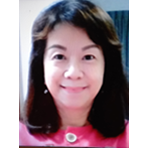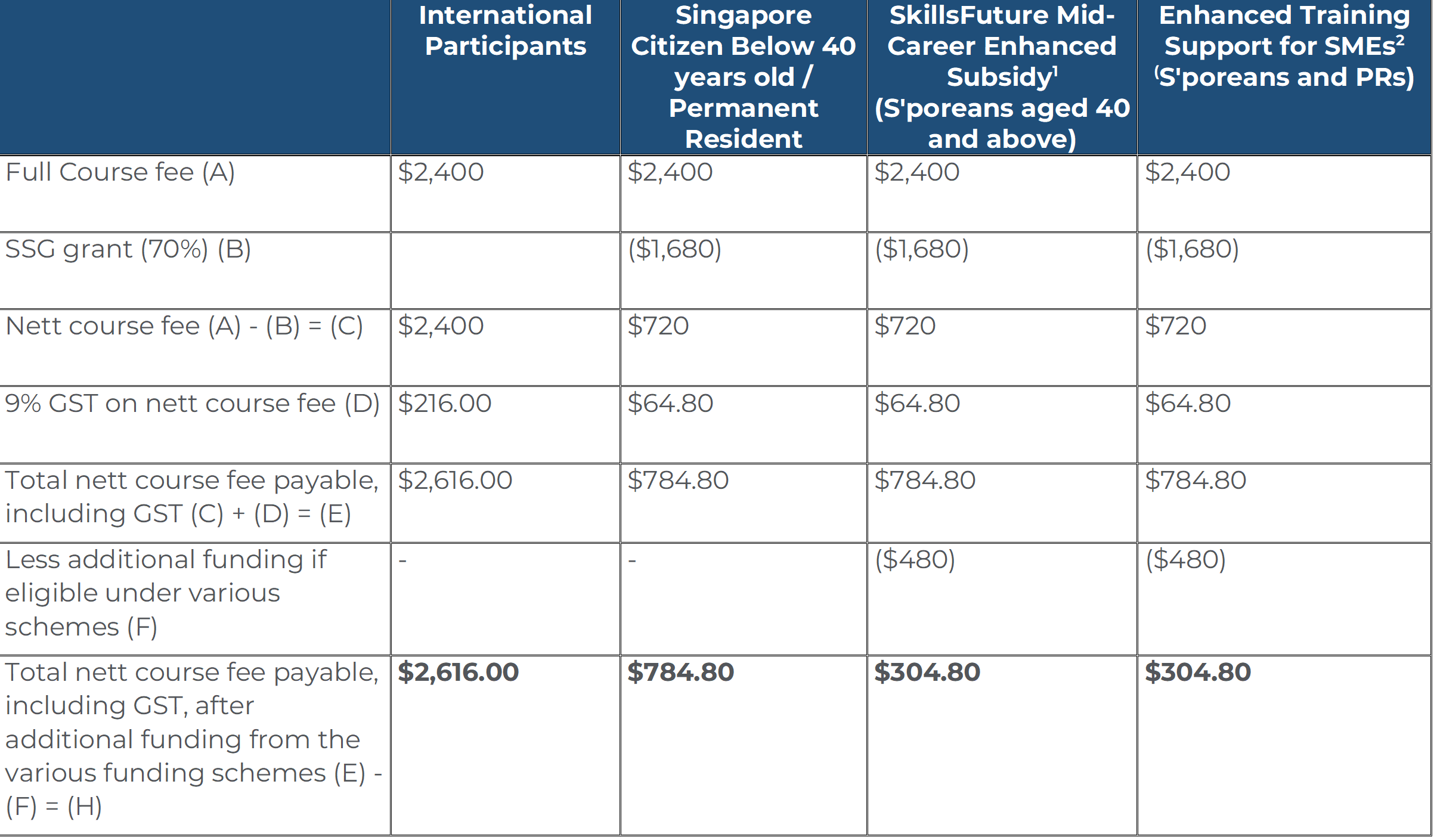Level: Advanced
Duration: 4 days
Dates: 20 to 23 May 2025
Venue: Singapore University of Social Sciences and via Zoom
Due to rapid population ageing, attention to ageing families has accelerated in recent years in Singapore. As a result, there is a heightened awareness concerning the care and support for the elderly as well as issues pertaining to the diversity of family structure, roles and interactions. This course provides participants with knowledge and skills to manage support for the elderly and their families. The needs and complex issues of the elderly can be multidisciplinary and multicultural in nature; for example, medical issues, legal, financial, cognitive, emotional and social aspects of the elderly as well as the caregiving challenges faced by the family caregivers. Participants will be guided using real-life situations for discussion when planning and implementing interventions with the elderly and their families in our local context.
In this course, participants will learn to apply Gerontological Counselling in building trust and rapport with the elderly and their family members. This will further help participants to explore and understand their thoughts and feelings, and be able to identify and deal with the diverse issues experienced in a family. Bowen Family Systemic Theory will be taught to help one’s family work together better and keep anxieties low. Caregiver Family Therapy (CFT) will be introduced to participants as CFT is a treatment model that offers a framework for addressing the complex needs and issues of families. One of its components is Self-Care. Hence, the Biopsychosocial Model will be used to help participants to manage stress and prevent burnout while attending to the needs of the elderly and family caregiving issues.
This programme is for social service professionals, as well as family caregivers who are or will be caring for the elderly.
- Values act as guides to one’s behaviour. Values clarification helps an individual to understand his/her own values and the family value systems
- Application of gerontological counselling including appropriate counselling approaches, as interventions to deal with family issues
- Caregiver Family Therapy processes include naming the problem, role structuring and caregiver self-care
- Awareness of local healthcare systems supporting the elderly and their families such as community services, Individual Care Plan, Lasting Power of Attorney, and Mental Capacity Act
- Bowen Family Systems Theory: emotional system regulation, family dynamics and multigenerational issues
- Biopsychosocial Model to support good mental health of both the elderly and their caregivers
Learning Outcomes
- To build stronger relationships and communicate more effectively through self-awareness and counselling
- To understand common issues of the elderly, such as loneliness, isolation, poor health, intergenerational, and learn interventions to deal with these issues
- To understand challenges faced by caregivers and manage the dynamics of parties involved in the caregiving process
- To help families to face family issues with strength using Caregiver Family Therapy
- To understand and apply Bowen Family Systemic Theory to promote understanding and calm reflections within the family context
- To recommend ways to manage anxiety and stress in caregiving
A. Knowledge and Understanding (Theory Component)
By the end of this course, you should be able to:
- Discuss and explain the needs of the elderly
- Identify and discuss the common challenges or issues faced by family caregivers
- Develop informed and robust intervention plans to manage these challenges and issues
- Identify family disputes that could arise especially from the care of the person with dementia
- Help family members to regulate their emotions while caring for the elderly
- Identify resources and support systems to help reduce caregiving stress
B. Key Skills (Practical Component)
By the end of this course, you should be able to:
Apply suitable counselling and mediation approaches for addressing and resolving family disputes
Use effective communication skills to strengthen positive interactions with family members involved in caregiving
Coordinate and conduct family meetings to discuss care plans for the elderly
Employ assessment tools to assess the status of one’s mental health
Schedule
| Time | Agenda |
|---|
| Day 1 |
| 09:00 - 10:30 | Self-introductions |
| 10:30 - 10:45 | Break |
| 10:45 - 11:15 | Discuss the various types of eldercare facilities in Singapore |
| 11:15 - 12:45 | Personal and professional values / Values clarification (group activity) |
| 12:45 - 13:45 | Lunch |
| 13:45 - 15:15 | Gerontological counselling approaches |
| 15:15 - 15:30 | Break |
| 15:30 - 16: 30 | Needs of the elderly and issues faced |
| 16:30 - 17:00 | Q & A |
| Day 2 |
| 09:00 - 10:00 | Role-play between counsellor and the elderly |
| 10:00 - 10:30 | Case discussion |
| 10:30 - 10:45 | Break
|
| 10:45 - 11:15 | Types of caregivers, common caregiving tasks and their roles |
| 11:15 - 12:30 | Caregivers Family Therapy (CFT) |
| 12:30 - 13:30 | Lunch |
| 13:30 - 14:30 | Interventions: Effective communication and mediation and role-play |
| 14:30 - 15:30 | Common family issues and conflicts faced by caregivers |
| 15:30 - 15:45 | Break |
| 15:45 - 16:30 | Family disputes arising from the care of persons with dementia |
| 16:30 - 17:00 | Q & A |
| Day 3 |
| 09:00 - 10:15 | Activity-based intervention for persons with dementia Psychoeducational therapy for caregivers |
| 10:15- 10:30 | Break |
| 10:30 - 11:45 | Group activity: conduct family meeting to discuss care plan |
| 11:45 - 12:30 | Local healthcare systems and resources for the elderly and their caregivers |
| 12:30 - 13:30 | Lunch |
| 13:30 - 15:00 | Bowen Family Systemic Theory (BFST) |
| 15:00 - 15:15 | Case Discussion |
| 15:15 - 15:30 | Break |
| 15:30 - 16:30 | Role-play between professional caregiver and family caregiver on emotional regulations based on BFST |
| 16:30 - 17:00 | Q & A |
| Day 4 |
| 09:00 - 10:00 | Allow participants to revise any topics from the three days |
| 10:00 - 10:15 | Break |
| 10:15 - 11:00 | Caregiver assessment |
| 11:00 - 12:30 | Biopsychosocial Model to support good mental health |
| 12:30 - 13:30 | Lunch |
| 13:30 - 14:15 | Biopsychosocial assessment |
| 14:15 - 15:15 | Common symptoms of stress Group Activity: the use of mind mapping as a strategy to manage stress |
| 15:15 - 15:30 | Break |
| 15:30 - 17:00 | 1.5-hour Assessment |
Degree in related fields (e.g. counselling, psychology, social work, gerontology, sociology) and currently working/volunteering in the social service sector
 Dr Kan See Mun
Dr Kan See Mun
Dr Kan obtained her Doctorate degree in Counselling in 2008 and has been lecturing at Singapore University of Social Sciences (SUSS - the then SIM University). The two courses that she lectures in are: (1) Counselling the Older Persons (2) Counselling on Ageing Family Issues.
Dr Kan is not only a Practicum Supervisor in Counselling at the National Institute of Education (NIE) but is also a Practicum Supervisor for the Bachelor and Masters programmes in Counselling at SUSS. Being the Associate Trainer with TSAO Foundation and Dementia Singapore (DA), she frequently conducts talks and workshops at hospitals, community centres, temples, churches on Dementia, Mental Wellbeing, Effective Caregiving and other Counselling-related topics.
She worked within SUN-DAC Centre for the Disabled as Executive Director for 18 years, and was the Director for Asian Women Welfare Association (AWWA). At AWWA, she undertook the responsibilities for the operation of Community Homes, Seniors Activity Centres and Rehabilitation Centres for the seniors.
Dr Kan presented two papers on Dementia topic at the 28th International Conference for Alzheimer’s Disease in Taiwan from 18 – 20 April 2013:
Please submit the following documents to [email protected]:
- Coloured copy (back and front) of NRIC for Singaporeans and PRs, or "Employment"/"S" Pass for foreign applicant
- Application form

1 Mid-Career Enhanced Subsidy: Singaporeans aged 40 and above may enjoy subsidies up to 90% of the course fees.
2 Enhanced Training Support for SMEs: SME-sponsored employees (Singaporean Citizens and PRs) aged 21 and above may enjoy subsidies up to 90% of the course fees.
- Participants are required to achieve at least 75% attendance and pass any prescribed examinations/assessments or submit any course/project work (if any) under the course requirement.
- Participants are required to complete all surveys and feedbacks related to the course
- The course fees are reviewed annually and may be revised. The University reserves the right to adjust the course fees without prior notice.
- Singapore University of Social Sciences reserves the right to amend and/or revise the above schedule without prior notice
For clarification, please contact the SUSS Academy via the following:
Telephone: +65 6248 8824 / +65 6248 0258 / +65 6248 0479
Email:
[email protected]